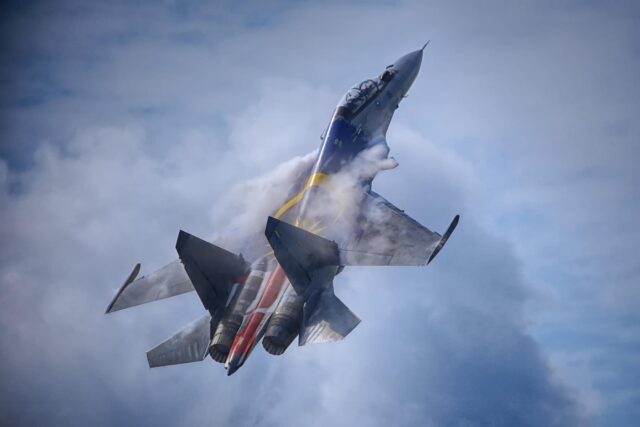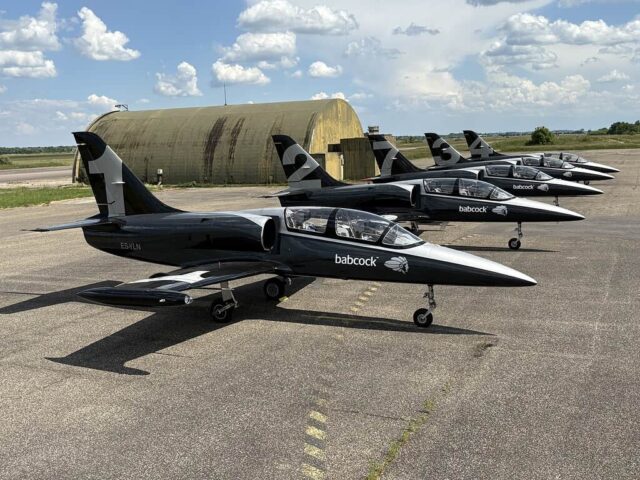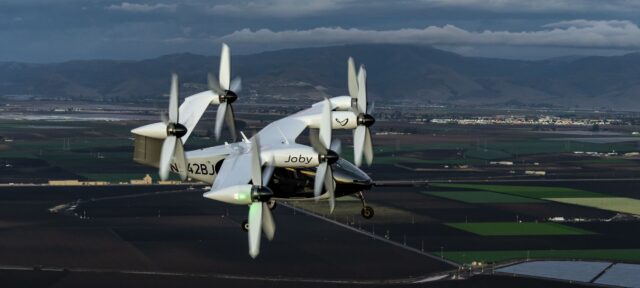
In today’s update, London City Airport suspends operations and industry reels from chancellor’s U-turn on pledge to provide an aid package for aviation, Delta increases cargo, Boeing and Airbus suspend or scale back production in the UK.
London City Airport has become the first airport in the UK to suspend operations during the coronavirus outbreak.
The airport closed its doors last night to commercial and private flights until at least end of April. News of the shutdown comes after chancellor Rishi Sunak made a U-turn on an earlier announcement for a specific bailout for the aviation industry.
A statement by London City Airport confirmed the closure but added that its staff would continue to be employed and would return to work as soon as possible. The statement said: “We have offered the use of London’s most central airport to the government in case it can be used by the emergency services or other agencies to support the national effort to combat the outbreak of this virus and provide care to people in need.”
The Airport is near to London’s ExCeL exhibition and convention centre which is currently being transformed into the 4,000 bed NHS Nightingale hospital by the health service and Ministry of Defence. RAF Hercules have been spotted landing at London City Airport over the past week.
Airlines and aviation associations had been lobbying the government for an industry aid package to stop businesses going under with both demand and revenue in freefall due to border restrictions and distancing measures imposed across the globe to contain the spread of the virus.
Industry must explore other funding sources first
Sunak wrote to airlines and airports on Tuesday afternoon warning them that there would be no sector specific package and businesses must explore other funding sources first such as raising funds from shareholders, investors and banks before turning to government support.
Aviation bosses have been lobbying the government for a targeted aid package to stop firms going under as a result of the slump. But in a letter to aviation sector firms, Sunak said the government would only step in as “a last resort.”
Sunak said the government would only enter into negotiations with individual airlines once they had “exhausted other options”. He added the government’s emergency business measures, unveiled as the economic impact of the crisis took hold, was also available to airlines. The funding measures, announced last week, include a Bank of England scheme for firms to raise capital and employee wage subsidies.
U-turn means industry is left to “fight on its own”
Chief Executive of the Airport Operators Association Karen Dee said the government’s U-turn on the aviation support package was disappointing. She said: “After having publicly announced a support package for airports and airlines, we’re surprised by where we find ourselves today. Our industry will now have to fight on its own to protect its workforce and its future.”
“With passenger numbers approaching close to zero, UK airports have seen a major drop in revenue. They are taking unprecedented steps to safeguard airport staff and operations through this crisis, which could include in some cases considering shutting down for a period of time. This could have major impacts for UK communities and businesses.”
Airports provide “lifeline services”
She added that airports continued to provide “lifeline services” to some of the UK’s most remote communities and ensured vital freight supplies arrived in the country.”
“All of that is now put at risk by the Government’s decision,” said Dee. “While countries across Europe have recognised the vital role airports play and are stepping into the breach, the UK Government’s decision to take a case-by-case approach with dozens of UK airports is simply not feasible to provide the support necessary in the coming days.”
“Not only does the decision today leave airports struggling to provide critical services, it will hamper the UK recovery. In addition to financial support, the support package should have included sector-wide regulatory alleviations, to reduce costs today and put in place the measures necessary to support airports, ground handling agents, air navigation service providers and others in their operational recovery once the pandemic recedes.”
Dee urged the Government to reconsider its decision and provide a comprehensive package of support for airports and ground-based services, to ensure the UK’s critical aviation infrastructure is ready to take off once the COVID-19 pandemic recedes.
Airlines UK calls for suspension of APD and other taxes
Airlines UK has asked UK Transport Minister Grant Shapps for a six-month suspension in air passenger duty (APD) following Sunak’s decision not to offer an industry-wide aid package.
The association wrote to the transport minister Grant Shapps seeking industry-specific tax and air traffic fee holidays to help survive the pandemic. The group, which includes EasyJet, British Airways and Virgin Atlantic, has said that the future of the sector, along with thousands of jobs, is now at risk.
As well as the APD suspension, Airlines UK has also asked for a waiver of air traffic control and related charges through the rest of 2020, as well as relief from EU flight compensation rules. A letter by Airlines UK read: “We believe a number of such measures are necessary to enable aviation both to deal with the ongoing crisis in the short-term but also to support and accelerate a strong UK recovery later in the year.”
Airlines UK added that its members were desperate for more information on how to access a scheme the government said would reimburse 80 per cent of the wage costs of workers who had been temporarily laid off.
The industry body added: “Please can we urge that further clarity is provided as soon as possible owing to the severe cash pressures that airlines are facing.”
Airlines UK said it would be in ongoing talks with the government and hoped it would consider temporary tax breaks.
BALPA calls for clarity among increasing number of pilot lay offs
In a statement released today, the British Airline Pilots Association (BALPA) says there are serious technical issues with the Government’s Coronavirus Job Retention Scheme (CJRS) which need urgent clarification. BALPA said the scheme won’t be ready for weeks but its workers are being laid off now.
The pilots’ union is concerned about the lack of detail in the system, that it is confusing and that it conflicts with current UK employment law. BALPA said many pilots were already grounded and faced pay cuts or redundancy as airlines looked at how to weather the impact of the pandemic.
BALPA is calling for clarity on the term ‘furloughed’, as there is no such concept in UK employment law. The pilots’ union is also asking what will happen to those who are not laid off on zero pay but, for example, half hours or half pay. This is more common and a better practice than laying off – but the Government scheme doesn’t cover this.
Pilots also want to know now how the process will work and BALPA has asked for the Government to provide details now.
Relief scheme lacks “detail and substance”
BALPA General Secretary, Brian Strutton, said: “While we are pleased to see the chancellor is looking at ways to help employees, it must be workable and lawful, so urgent detail is necessary immediately, before employers and workers make mistakes.”
“From the scant details we have now, it seems like a terrible mess. We are very concerned that some people will simply fall through the net of this provision, and that it may give an employer a ridiculous incentive to give a few staff lots of work and furlough the rest.”
“It is surely obvious that topping up reduced pay or hours should also be part of the scheme, not just paying for lay-offs. The point is, workers are being laid off or being put on reduced pay right now and are in total confusion.”
“Announcements without detail and substance are a source of confusion to both workers and their employers. The chancellor needs to sort this out now.”
Delta to use passenger jets for cargo flights
Delta Airlines has become the second major US passenger airline after American Airlines to use its grounded passenger aircraft for cargo flights.
Earlier this week, the carrier operated a cargo-only Airbus A350 flight carrying 32,000 lbs of medical supplies from Dublin to Atlanta. Delta has also operated two Boeing 777-200LRs from Los Angeles (LAX) to Sydney (SYD), carrying more than 80 tonnes of cargo with a cargo-only flight from Chicago O’Hare to Amsterdam ferrying US mail expected later this week.
Delta VP of cargo Shawn Cole said: “Transforming our operation to provide cargo-only charter flights allows us to diversify our business at a time where the global need to move critical supplies is significant.”
Delta Cargo flies 421,000 tonnes of cargo globally every year in the bellies of passenger aircraft.
Airbus reduces wing production for three weeks
Airbus will be reducing the production of aircraft wings for three weeks as it slows operations to ensure additional health and safety measures are put in place to slow the spread of the coronavirus pandemic.
The measures will affect its wing plants in Broughton, UK and Bremen, Germany. Airbus resumed partial production in France and Spain on Monday at a slower rate than normal.
Embraer to produce ventilator parts with its supply chain
Embraer is working in partnership with companies and research centres to increase the availability of equipment and solutions to combat COVID-19 in Brazil.
The manufacturer is to begin production next week, along with its supply chain, in response to emergency demand for vital parts and components for the ventilator industry. These will include replacement of imported components for ventilators, development of high-efficiency filtration systems for transforming regular hospital beds into intensive care beds and developing simple, robust and portable respirators aimed at rapid implementation and availability.
Embraer, in cooperation with its partner organisations, has already completed the technical and production capacity analysis required to meet the identified needs.
Boeing to close Sheffield factory
Boeing is to close its multi-million pound Sheffield factory – but will remain on standby should it be required to manufacture ventilators for the NHS.
The move comes after coronavirus cases in Sheffield rose by more than a third in 24 hours. A statement by Boeing said: “Boeing Sheffield operations have been temporarily suspended and colleagues asked to work from home because of the COVID-19 public health emergency until at least 15 April 2020.”
“Should the UK government need Boeing Sheffield for ventilator production during this time, there is a team ready and able on standby to support national efforts.”















